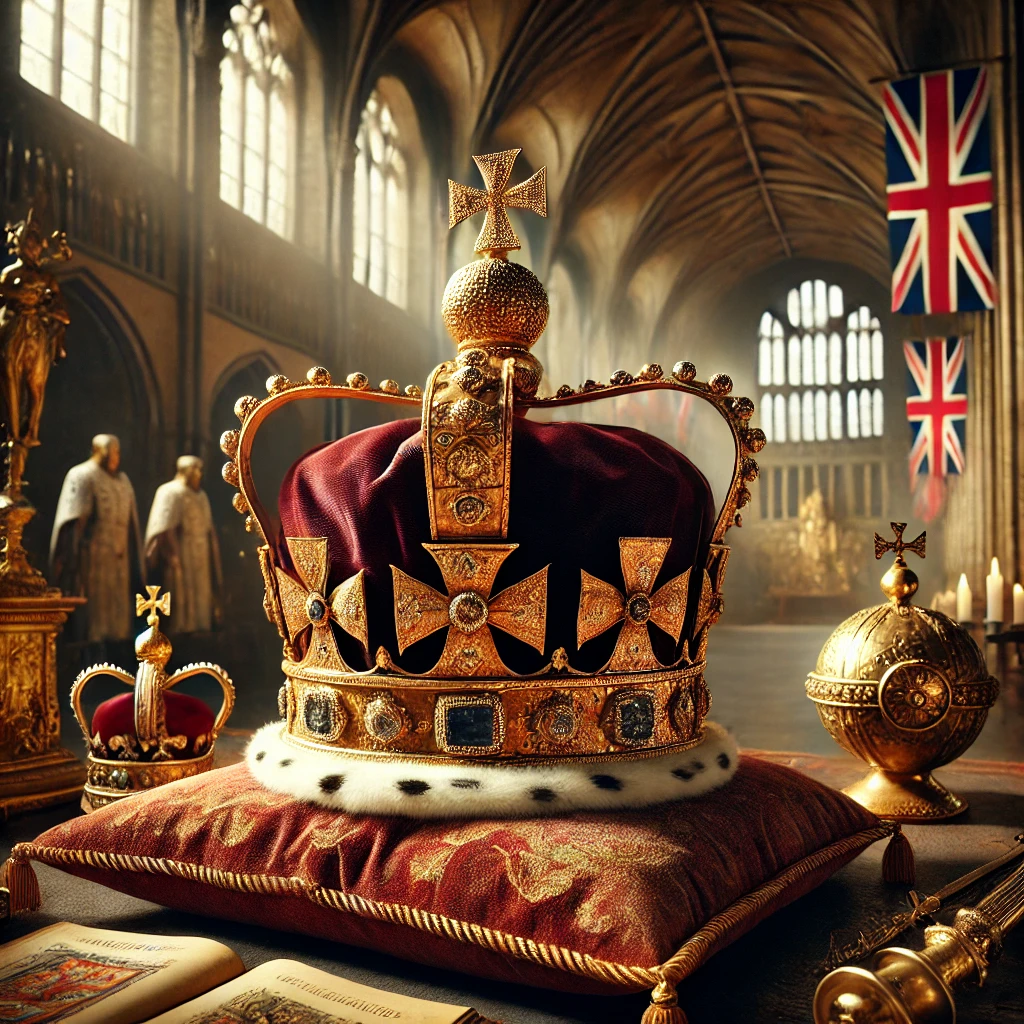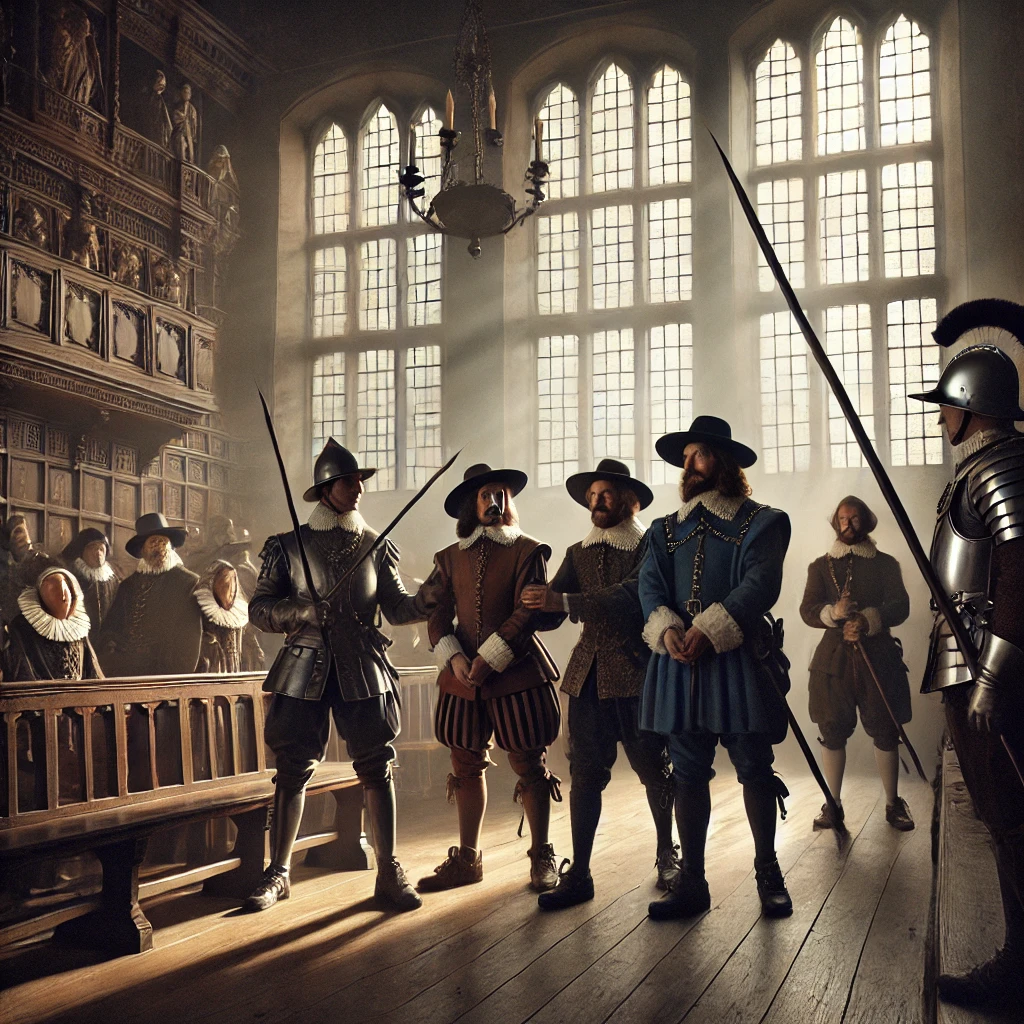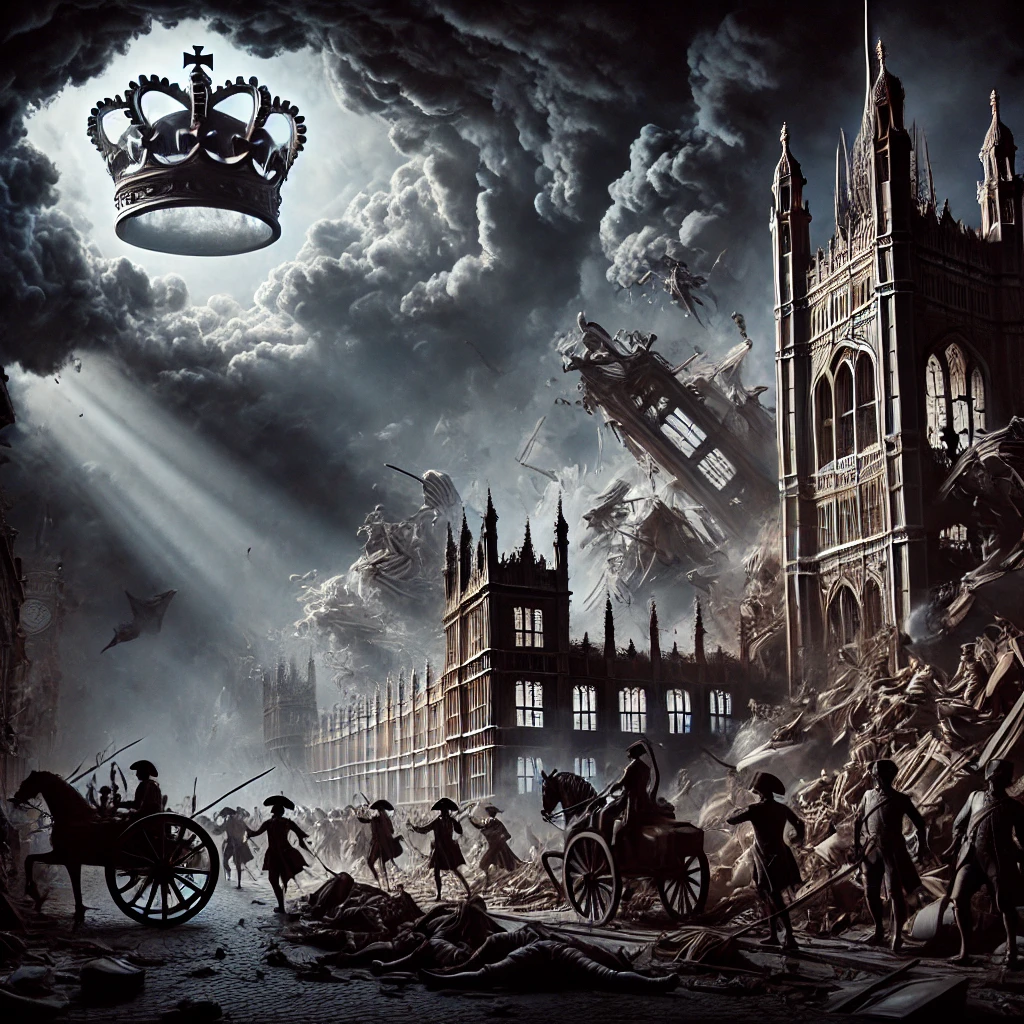On January 4th, 1642, a dramatic and pivotal moment occurred in English history as King Charles I attempted to arrest five members of Parliament. This bold move marked a significant escalation in the already mounting tensions between the monarchy and Parliament. It was an event that would set the stage for the outbreak of the English Civil War, fundamentally changing the political landscape of England.

The Tensions Leading Up to the Arrest
The relationship between King Charles I and Parliament had been deteriorating for years. Charles, who ascended to the throne in 1625, believed in the divine right of kings and sought to rule without the interference of Parliament. His belief in absolute monarchy was met with growing opposition from Parliament, especially over issues like taxation, religious policies, and the king’s attempt to dissolve Parliament when it didn’t agree with his policies.
The tensions reached a boiling point in the early 1640s when Charles attempted to impose new religious reforms, which were unpopular with both Parliament and the public. Additionally, his financial policies, including the collection of taxes without parliamentary consent, angered many. In 1641, Parliament began to pass laws that curbed the king’s powers, and in response, Charles attempted to assert his authority by taking more drastic measures, including the ill-fated attempt to arrest five members of Parliament.

The Attempted Arrest of Parliament Members
On January 4th, 1642, King Charles I entered the House of Commons in London with the intention of arresting five members of Parliament—John Hampden, Arthur Haselrig, Denzil Holles, William Prynne, and the Earl of Stamford—whom he believed were leading the opposition against him. As the king entered, he found that the five members had already fled. The scene that unfolded was tense, as Charles demanded that the Speaker of the House provide him with the names of the members, only to be met with resistance. The Speaker, William Lenthall, famously declared, “I have neither eyes to see, nor tongue to speak in this place, but as the House is pleased to direct me.”
The king’s attempt to arrest the members was a grave misstep, as it symbolized a direct challenge to the authority of Parliament. It was seen as an overreach of power by many, and the incident shocked both the public and many members of the court. Charles, realizing his move had failed, was forced to retreat, but the damage had been done. This event dramatically increased the animosity between the king and Parliament and solidified the divide that would soon erupt into full-scale civil conflict.
The Outbreak of the English Civil War
The attempt to arrest Parliament members was a direct catalyst for the outbreak of the English Civil War, which began in 1642. In the wake of the failed arrest, both sides began to prepare for conflict. The king’s authority was increasingly challenged, and Parliament organized its forces in defiance of the monarchy. Charles eventually raised his standard in Nottingham in August 1642, signaling the official start of the war between Royalists (supporters of the king) and Parliamentarians (supporters of Parliament).
The English Civil War would continue for several years, resulting in significant political, social, and religious upheaval. In 1649, Charles I was tried, convicted, and executed, a monumental event that led to the temporary overthrow of the monarchy and the establishment of the Commonwealth under Oliver Cromwell. While the monarchy was restored in 1660, the events of 1642 and the ensuing conflict forever changed the balance of power between the crown and Parliament, setting the stage for the eventual constitutional monarchy that would emerge in Britain.

The attempted arrest of five members of Parliament on January 4th, 1642, was a pivotal moment in English history that escalated tensions between King Charles I and Parliament. This dramatic event marked the beginning of a series of events that would lead to the English Civil War, a conflict that would reshape the future of England. The king’s failed attempt to assert his authority over Parliament ignited a struggle that culminated in the king’s execution and the temporary abolition of the monarchy. Today, this incident is seen as a critical turning point in the development of British democracy and the ongoing evolution of the balance of power between the monarchy and Parliament.
